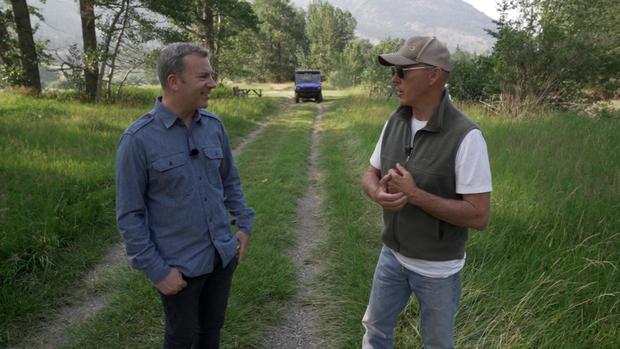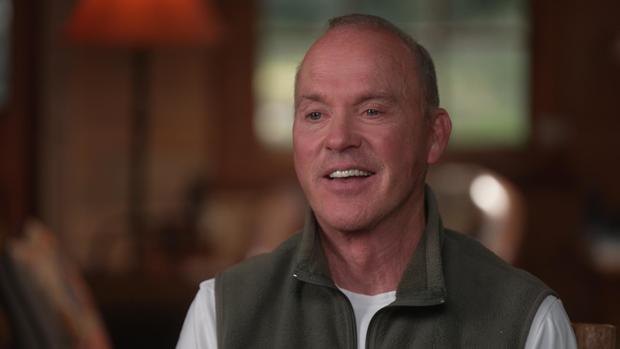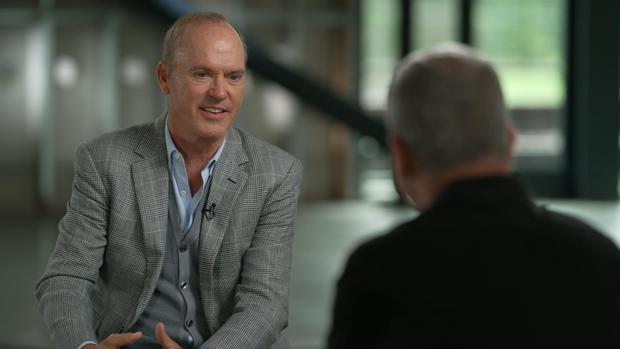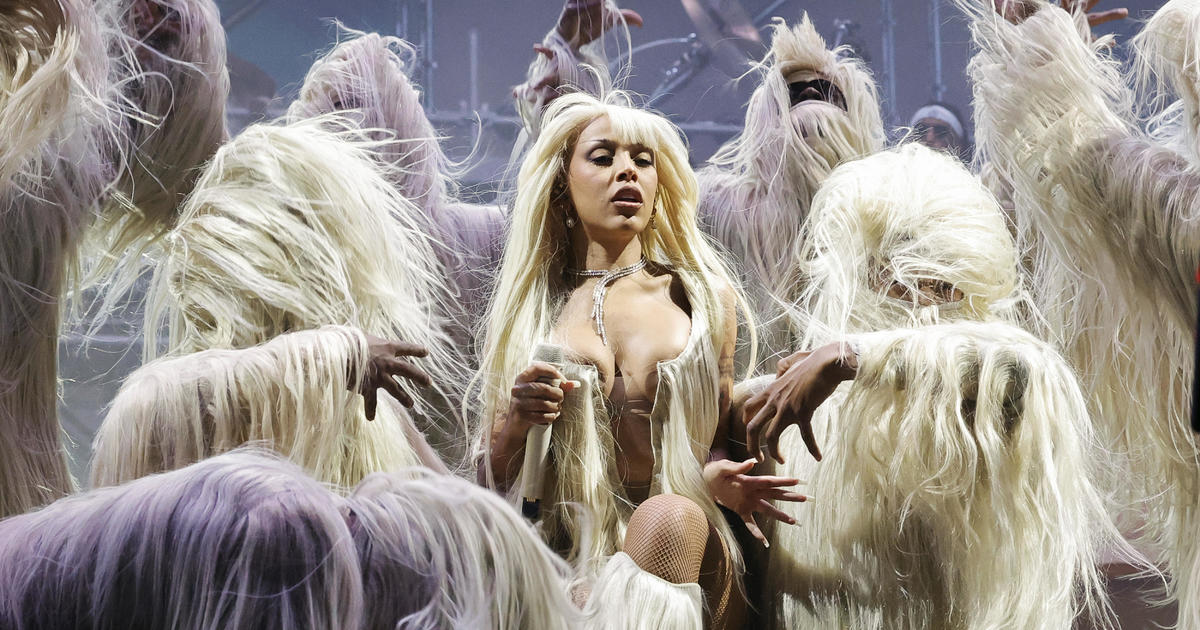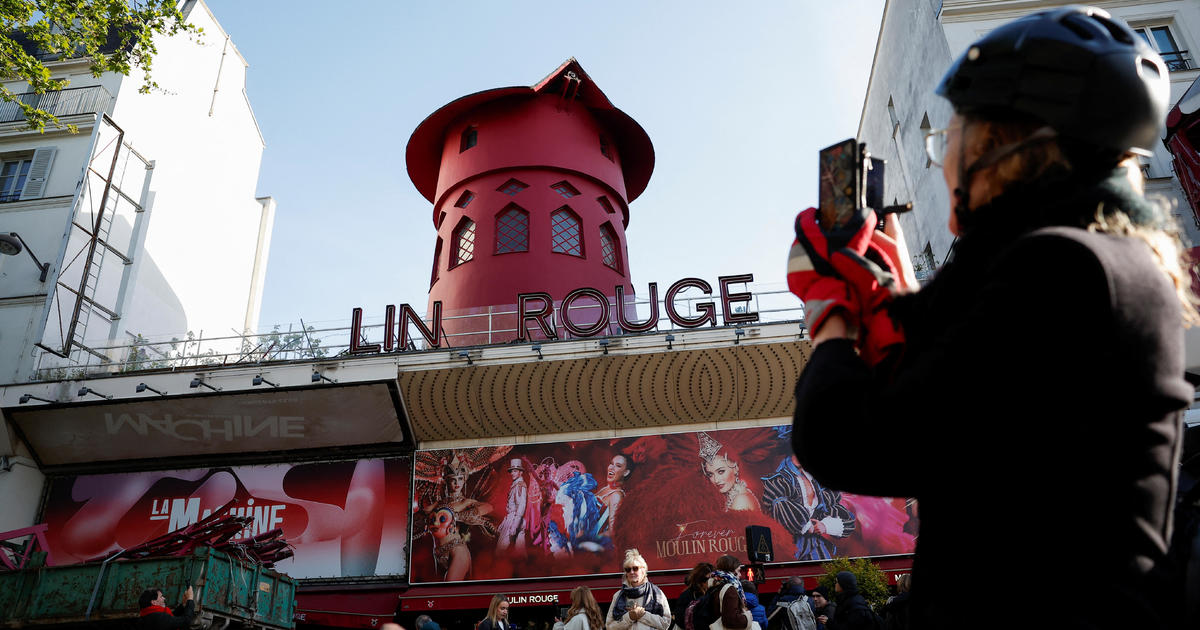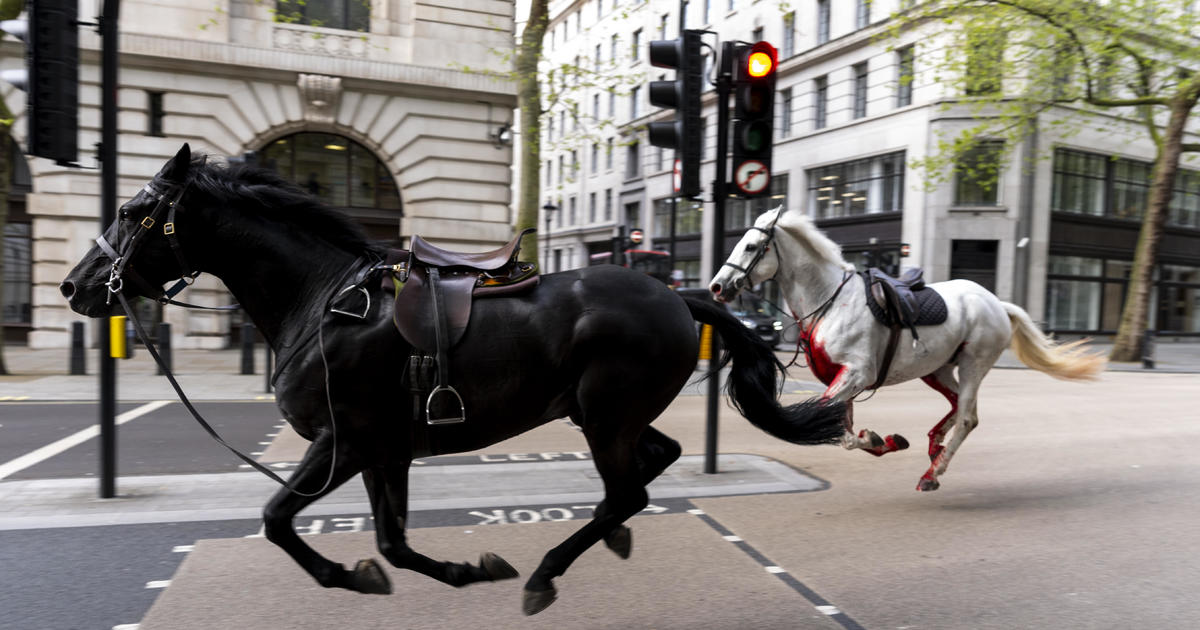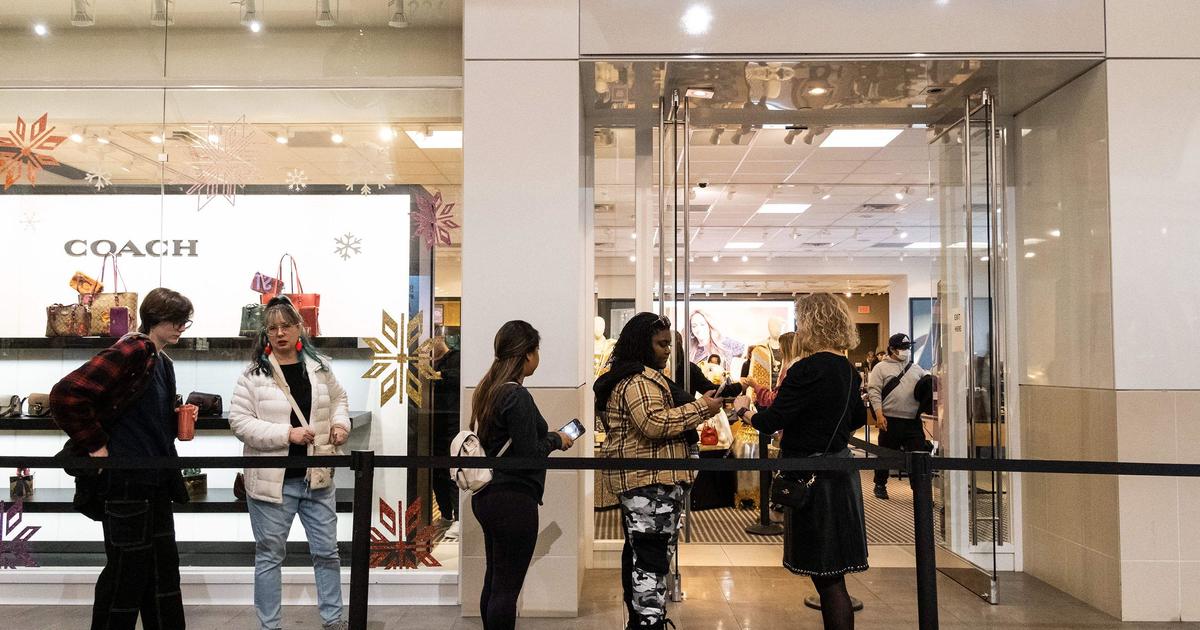Michael Keaton on his career, the characters he's played and suiting back up as Batman
It's almost like when no one was looking, Michael Keaton crept on to Hollywood's A-list, and then never left. Except that we were looking. Keaton's films have, collectively, grossed billions at the box office. He's played Birdman and Batman and starred in "Spiderman." The irony is that Keaton's real power is portraying, the everyman. The salesman, the FBI-man, the put-upon newspaperman. An actor on a career-long crusade against typecasting, Keaton is willfully unpredictable in choosing his roles. But he is consistent in nailing them. As we first reported last October, at age 70, he's still at it. Find Michael Keaton a character he finds appealing and, to borrow a phrase, it's showtime.
Forget about meeting at some precious Malibu bistro or on a movie set. Michael Keaton wanted us to meet him in his element, so we did, here, on his thousand-acre swatch of trout streams and mountains under Montana's big sky.
It's easy to be humbled by the sheer vastness of the place. Not that this is a movie star in need of any ego reduction.
Michael Keaton: As soon as I bought this place-- soon as I bought it-- and it was a dream of mine from time I was a little kid-- it hit me. Like, it was crystal clear that I don't really own anything. You don't really-- you-- we're renters. You know, I don't own this. This is just-- I just happened to make a transaction.
Jon Wertheim: Just passin' through.
Michael Keaton: Passin' through.
After a short drive up a dirt path we discussed range of a different sort. We asked Keaton about his staggering versatility, the key to his success – and Hollywood longevity.
Jon Wertheim: Go down your IMDB page and in the best possible way you get whiplash. I see this archetype, American male. And it's lawyers, and newspaper men and doctors.
Michael Keaton: I guess that's true. I guess, yeah. If I went-- and I've never seen my IMD-- IMDB? Or IMBD? Which one? I can know-- which-- which one comes first-- but I-- but, yeah. Well, if you put it like that I'd go, yeah pretty much. But it's a representation of all kind of, you know, within that. Like, but-- who's the person in that job? You know. What's-- what's the person in that job?
Jon Wertheim: Right, right, right, right.
Michael Keaton: People talk about range. There's-- you know, it's -- flattering. But range doesn't really-- range, schmange, you know. It like—
Jon Wertheim: Really?
Michael Keaton: Yeah well range…
Jon Wertheim: I would think you'd take pride in that.
Michael Keaton: I do. But I don't think of it in terms of, "Well, you played that. Then you were funny. And then you-- then you were a sad man. And then you--" You know, that's not really to me-- range. You know, you go inside the-- the person, you know.
Jon Wertheim: Is there range within a character?
Michael Keaton: Yeah. Because they're human beings, you know.
And that includes one superhero - this may be the ranch Batman built. Keaton bought it in 1989 the same year as his biggest blockbuster. But by then he had already established his M.O.: delivering a certain believability to a broad array of characters. A stay-at-home dad, a crazy-haired poltergeist, a washed-up actor, a founder. In each of them Keaton does, well, that Keaton thing. He projects a disarming intensity, his brows arch; the eyes narrow, the mouth puckers, and we are buying his character even before his trademark staccato patter kicks in.
Michael Keaton: I used to kind of think I had to flee from-- me, you know, and then later on. There's something in me that's-- that's okay." I was never afraid to go to a dark or scary or really, really, really raw places-- ever, ever. But also I didn't want to look back and go, "You kind of-- kind of wussed out," you know? And sometimes there's no crime in saying, "This is pretty easy. Just-- just open your mouth, and let the words come out, and-- and tell the truth."
This sixth sense for authenticity. It first came to Keaton in the most un-Hollywood of places: Keaton's home in Western Pennsylvania. It was a seminal moment in his childhood when his family won a black-and-white tv in a raffle.
Michael Keaton: So what I watched and learned and-- and grew up on and loved was really television, old Westerns primarily, which I loved. I wanted to be those people.
Jon Wertheim: You didn't want to be Gene Autry. You wanted to be the cowboy.
Michael Keaton: Oh yeah. And, you know the thing is, I never bought those guys even at a young age. I said, "They're too pretty. They're too clean. They probably don't smell." From the time I was young. I had to believe everything I was seeing.
Michael Keaton grew up the youngest of seven kids, raised in a working-class town outside Pittsburgh. His father was a civil engineer; his mother ran the show at home. Keaton was an altar-boy—literally—and he says, a decent student — as long as there were nuns around. He attended Kent State University for one year, and then seriously committed to what had, till then, been vague designs of acting and performing stand-up comedy.
Michael Keaton: I mean, everybody has the hard memories, the embarrassing tough times and the down times. You know, no-- no money or no-- you know, livin' in s**** places. But that's, like-- that's, like, not a big deal to me. You know, that's-- that's just part of the deal.
But his nostalgia has its limits. He recalls the perils of the open mic.
Jon Wertheim: I heard a story. When you followed an Irish folk singer up on stage?
Michael Keaton: Ugh.
Jon Wertheim: What happened?
Michael Keaton: Well, first of all, this f*****' guy would wear, like, one of those knit sweaters, like, in July. You know, one of those, like, fisherman sweaters.
Jon Wertheim: he's committed to the role.
Michael Keaton: Yes, totally committed to the role you know. He's gonna sing that song where, like, all the kids in the family went down in the ship, you know, in the cold f*****' Irish Sea." And I'm gonna go, "Hey, everybody. How you doin'?"
Jon Wertheim: Not much of a warm-up act.
Michael Keaton: No.
In Los Angeles, Keaton sharpened his improv chops in the clubs on sunset and on the small screen. Then, his big break, he caught the eye of a seasoned comedy writer who recommended him to a hot director in town.
Michael Keaton: I got an audition. And then I got a callback, another callback, another callback, another-- I think five or six.
Jon Wertheim: All for the role of Billy Blaze.
Michael Keaton: Yeah, Billy Blaze. Yeah.
"Night Shift," directed by Ron Howard, marked Keaton's first movie, an electric breakout comedic performance, one that still holds up. With license to improv, he steals scene after scene as Bill Blazejowski, the antic-frantic morgue attendant moonlighting as a pimp.
Jon Wertheim: You seemed to get that guy.
Michael Keaton: Yeah, I got that guy. it was kind of there on the page. You know, the-- like, I'm an idea man that was the fundamental thing.
Michael Keaton: And they were welcoming in all the improv.
Jon Wertheim: You could bring your improv chops.
Michael Keaton: Yeah, yeah. Yeah, they were good about that.
Jon Wertheim: –kind of the best of both worlds. You're not doing stand-up. But, like…
Michael Keaton: 100%.
He would lean on those skills one year later in "Mr. Mom." But right before Hollywood could corner Keaton solely as a comedic actor, he swiveled in the opposite direction – with movies like "Clean and Sober" and the thriller "Pacific Heights."
Jon Wertheim: Not a lot of typecasting here. Accident or design?
Michael Keaton: I wanted to set it up so that-- I had more shots. I wanted to be able to play a lot of different things. Because, I learned real quickly that they were going, "Oh, we like when he does that. Get him to do that. Let's hire him to do that thing." I thought, "Oh boy, that could I think, frankly, I would have been out of the business." People would have been, if they're not bored already, bored to tears early with me.
This overlay of light and dark convinced director Tim Burton that Michael Keaton was right for the lead in his next big budget movie: "Batman." Keaton would embody Bruce Wayne – as a complicated, even tormented tycoon hellbent on justice, hardcore fans of the DC comic hero were horrified about casting Mr. Mom as the Caped Crusader.
Michael Keaton: You know, I have a long memory. You know, so a couple occasions where, you know, people were kinda-- not just, maybe did more than doubt you. You go, "Okay. I'll wait."
Jon Wertheim: Peers or reviewers or?
Michael Keaton: Just things that happened a couple times. You just kinda clock it.
Jon Wertheim: You remember that stuff.
Michael Keaton: Yeah.
Jon Wertheim: So you're comin' into this role. And you're the new Batman.
Michael Keaton: Yeah, yeah. No, I am the-- Batman.
Jon Wertheim: You're the Batman. But you've got this lineage…
Michael Keaton: Yeah. Let's be clear about that. No, I'm kidding.
Michael Keaton: "Batman," the first "Batman" I think Tim and I both knew if that doesn't work-- that one, I had awareness of. I thought, "Ooh, this-- this could really fail."
Jon Wertheim: Yeah, I mean, it strikes me, that's another risk of a different kind, right?
Michael Keaton: Yeah. Yeah. There was a lot of pressure on that movie for everybody.
Holy gamble-that-paid-off, Batman. The movie made more than $400 million and catapulted Keaton to a new plane of stardom – proof that resisting conventional Hollywood wisdom had its advantages. Keaton continued his game of character hopscotch in another 30 movies from Shakespeare to "Spotlight." Some brought more box office success than others. But when he wasn't acting, Keaton was a hands-on dad to his son, Sean— who is now 39 and a successful songwriter in Los Angeles. And Keaton had reached a point where he could be choosy. In 2014, enter "Birdman" and Keaton's almost absurdist role that earned him a Golden Globe for Best Actor.
Jon Wertheim: Hardest role you've had?
Michael Keaton: Mostly, yeah. It had to be so specific and so precise. You actually had to be, like, on a certain word or a point in the sentence and geographically in a spot. Like, on-- in a hallway or down a set of stairs. Specifically word perfect. And it was really hard. Scary every day.
Jon Wertheim: Do people in your line of work have rivals like athletes? I mean, are you-- "You know, hey--Bill Murray, I'm coming for you?"
Michael Keaton: I don't know. You know, that's the thing. There's nothing' we can do. You know, we can't go, like, box each other. (LAUGH) You know, I mean. We're all in-- a brother and sisterhood to some degree, you know? Like-- you know, the criticism of people's performances I find really bush league, you know? It's like, "What do I know?" I'm not sure I even know enough. And I'm not being humble. I'm being honest. I don't-- I don't know that I even know enough to say, "Well, that's not any good."
In his latest project, Keaton is back to interpreting the American male, "Dopesick," released last October, is a Hulu mini-series about the country's opioid epidemic. Keaton plays a doctor in a coal-mining town overwhelmed by oxycontin. But this time, he admits there's a little more to the part.
Michael Keaton: You know, that means a lot to me, 'cause, you know, I lost a nephew to fentanyl and heroin.
Jon Wertheim: What's it like when you have this kind of personal connection to a role?
Michael Keaton: You have to remove the emotion and just, like I keep saying, you know, what's-- what's the job at hand, you know, what's-- I'm just a storyteller.
Befitting a man who pivots from role to role, Keaton is especially thrilled by Pittsburgh's transition from steel to tech. He returns home often and invited us to a modified steel mill turned innovation center not far from where he grew up. Keaton is an investor in a construction company, Nexii, that here in Pittsburgh plans to make eco-friendly alternatives to concrete.
Michael Keaton: I get this. And I actually like it. And if I'm gonna-- man, just look at this summer. If I'm going to-- have an opportunity to do anything and put my money where my mouth is. You can't just have an opinion about climate change anymore. It's, like, here now.
Jon Wertheim: The bill's come due, huh?
Michael Keaton: That's right. The bill's-- the bill's come due.
Keaton would happily spend more time here, and in Montana, if it weren't for that pesky day job. He finished filming "The Flash," reprising his role as Batman, 30 years after he left the franchise. And we had to know...
Jon Wertheim: But is this Bruce Wayne still the tortured somewhat dark figure he was as we recall?
Michael Keaton: Ish. He's kind of-- you know, I can't give too much of this away. I'm one of those guys who goes, "Well, I-- I-- I'm not givin' that s*** away." Go see the movie.
Jon Wertheim: How's the costume fit?
Michael Keaton: (LAUGH) Proud to say I slipped right back into it.
Jon Wertheim: You're 70 years old, and you're still kicking bad guys' ass. That's gotta feel good.
Michael Keaton: Yeah. If you know anybody whose ass needs kicked, just don't call me. (LAUGH)
Produced by Michael Karzis. Associate producer, Katie Kerbstat. Broadcast associate, Elizabeth Germino. Edited by Craig Crawford.
